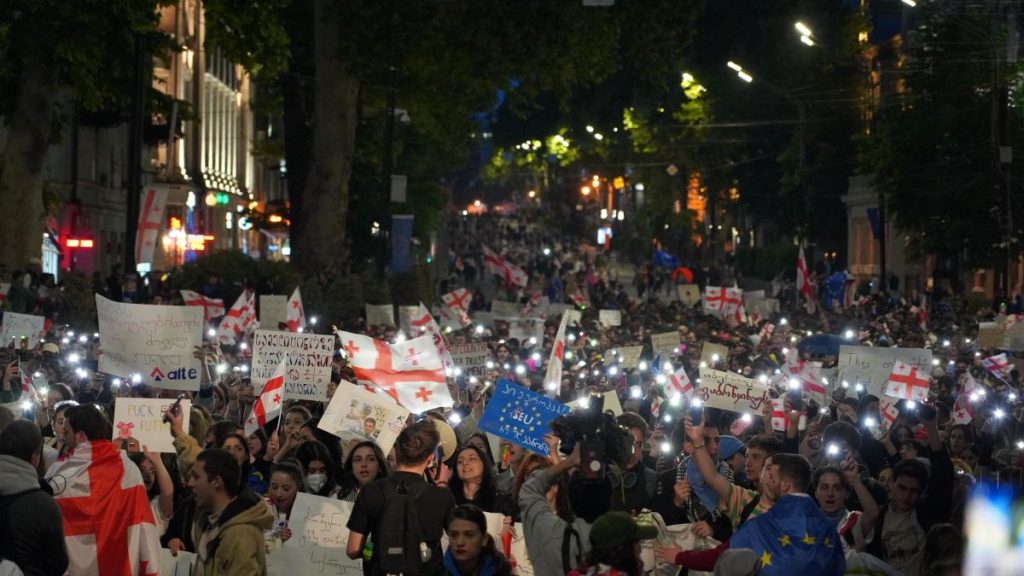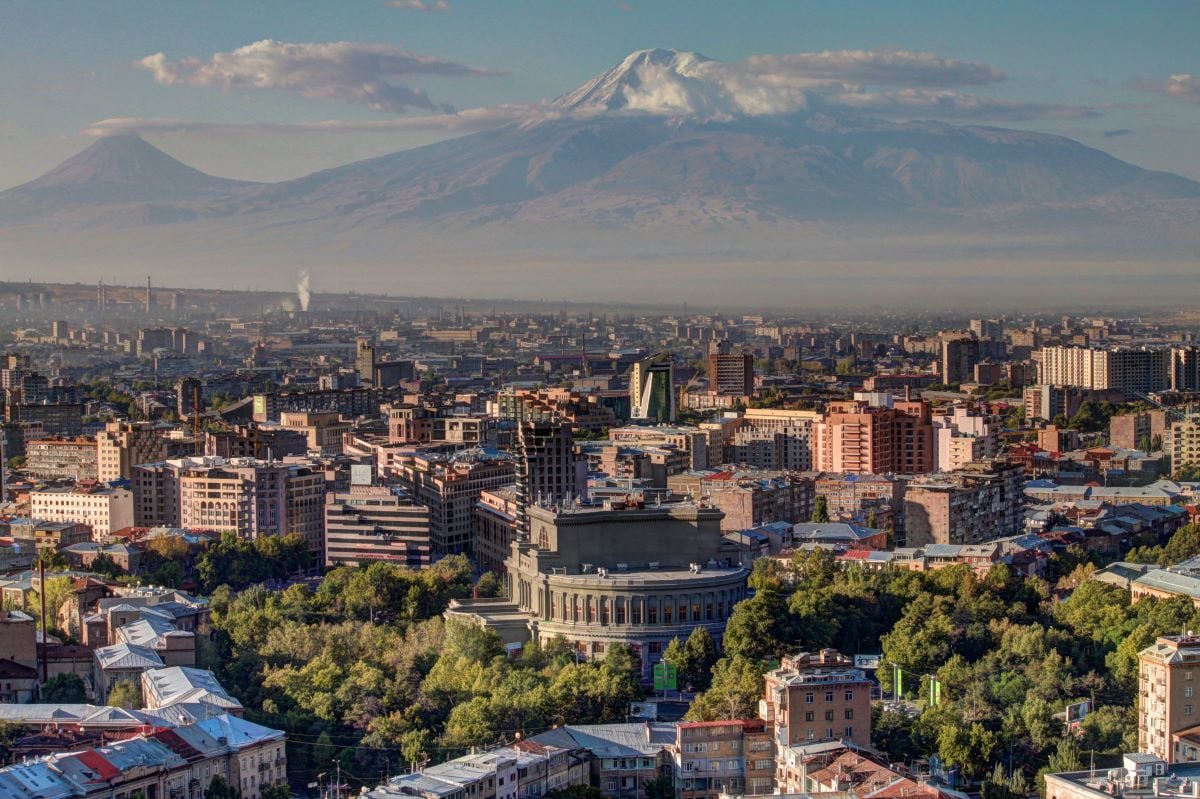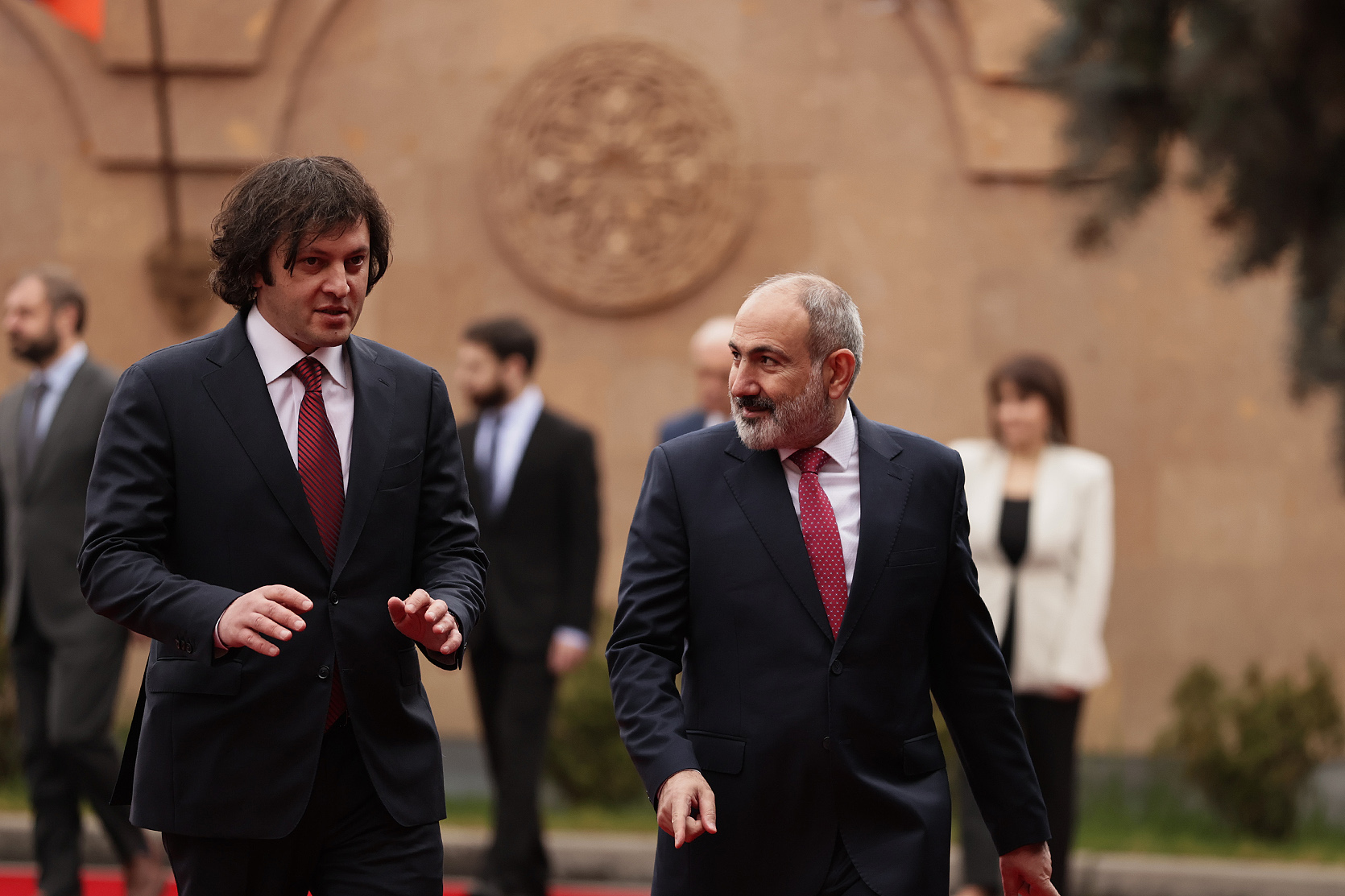"The 'Russification' of Georgia will complicate Armenia's departure from Russia." Opinions from Yerevan
Armenian experts on Russian law
The Georgian Parliament has already passed the law “On Transparency of Foreign Influence” in its third and final reading. Within Georgian society, it’s referred to as the “Russian law.” This law mandates that non-governmental organizations and media outlets, whose foreign funding comprises more than 20 percent of their annual income, register in a registry of organizations representing the interests of foreign powers. In essence, they are required to declare themselves as “foreign agents.” Western partners urged the Georgian authorities not to pass the law and continue to criticize it now.
Armenian experts have varying assessments of the adoption of this law. The majority believe that the “Russian law” will have a negative impact on Georgia’s European integration and further complicate Armenia‘s departure from Russia. However, there’s also an opinion that by making this decision, Tbilisi is simply trying to maintain its sovereignty.
- Threats, insults, beatings. Why has the ruling party of Georgia declared war on activists? Expert commentary
- Kremlin offers Georgia territorial integrity for “foreign agents” law? Opinion from Abkhazia
- “If something worries your friend and pleases the occupier, it’s better to think twice” – USA Ambassador to Georgia
Key points about the law
The ruling party, Georgian Dream, initiated the “foreign agents” draft law over a year ago, in March 2023. The Parliament passed it in the first reading, but due to mass protests by Georgian citizens and sharp criticism from the West, the government withdrew the draft law.
On April 3, 2024, the authorities decided to revive it. The content remained the same, but now it is called the law “On Transparency of Foreign Influence.”
Discussion of the draft law was again accompanied by massive protests, even more extensive this time. Hundreds of thousands of Georgian citizens took to the streets in protest.

Western partners once again issued condemning statements, stating that the “foreign agents” bill would create significant problems for Georgia’s Euro-integration. Shortly before the law was passed in its third reading in Tbilisi, James O’Brien, Assistant Secretary of State for European and Eurasian Affairs, arrived.
During briefings following meetings with the prime minister of Georgia, the foreign minister, the president, the speaker of Parliament, the opposition, and civil society, he warned:
“If the level of democracy in the country declines and violence is used against peaceful demonstrators, then financial restrictions will be imposed, including travel restrictions on individuals and their families who will be held responsible for destructive actions.”
Additionally, O’Brien emphasized that if the current rhetoric towards the United States and other partners persists, if the U.S. is seen as an “adversary rather than a partner” in Georgia, then the $390 million aid package, allocated for defense and economic programs, will be reconsidered.
After approval by Parliament, the law is presented to the president of Georgia for signature. Salome Zourabichvili has repeatedly stated that she will veto it. However, the ruling party, Georgian Dream, has enough votes to override it.
Comments
Gurgen Simonyan, political analyst
“The adoption of the law will undoubtedly have a negative impact on Georgia’s European integration. But I don’t think the matter is closed. Salome Zourabichvili has already stated that she will veto it. The adoption of this law has caused a serious political crisis in Georgia, and civil society is actively fighting for its repeal. Let’s see what happens next. Processes are ongoing. It cannot be assumed that everything has ended.
As for Armenia, it should not condition its internal development process and foreign policy prospects on events in one country or another.
On the other hand, undoubtedly, our task to move forward in the democratic direction and to break free from Russian influence will become more complicated.
Georgia is a natural link for us to the outside world. But links can be diversified. I don’t believe we are in a hopeless situation.
Armenia should steadily pursue its path and not feel constrained, regardless of the processes in neighboring states.
Of course, it would be good if we could influence the process, apply balancing mechanisms so that the upheavals there are not so sharp and do not infringe on people’s rights and opportunities. But even if we cannot take on this function, we must demonstrate a steadfast and principled position in terms of our policy.”
Hakob Badalyan, political analyst
“Armenia and Georgia are seen by the West as pivotal positions for expanding their influence in the South Caucasus. And official Tbilisi has decided to maintain its sovereignty in this context.
It’s hard to say how this will end. The match is unlikely to end in a draw. Either official Tbilisi will win, or Tbilisi will be defeated.
In response to warnings from the USA about a possible review of relations, the prime minister of Georgia stated that the USA would harm themselves by doing so. He also called for pragmatism, stating that such steps and sanctions would not weaken the position of the Georgian authorities.
The confidence of the Georgian leadership allows for the following conclusions. Either the country’s authorities are convinced that protest actions do not receive significant support from Georgian society, or they believe that they can still retain power, and if the West applies sanctions, it will only weaken the West’s position both in Georgia and in the Caucasus. It seems that Tbilisi is gambling on this logic.
[Shadow leader of Georgia Bidzina] Ivanishvili understands that even if he reaches agreements on some issues with the West, he is not considered one of them, and they will always prefer his party to be out of power.
When we talk about joining the European Union, our perceptions are based on the realities of past years. The ongoing global war fundamentally changes the situation. The question of membership is no longer so straightforward. It all depends on what kind of EU we will deal with, in what situation the EU will be after the Ukrainian war. No one can say what kind of Europe it will be.
And some countries are pondering their sovereignty in this global war. After its conclusion, when international relations will be determined by new rules, world order, new divisions, countries will have to make a certain choice. In my opinion, this is the logic that official Tbilisi is trying to follow.”




















